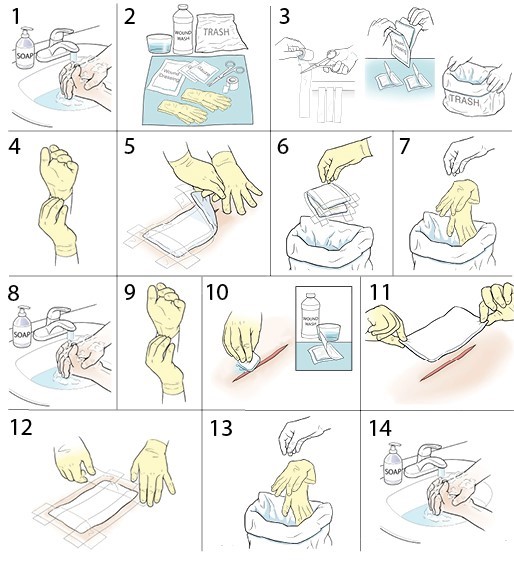A nurse in an acute care facility is reviewing medication administration protocol with another nurse. Which of the following information should the nurse include in the review?
Use one client identifier before administering medication
Read medication labels twice before administration.
Document the administration of medications after all assigned clients have been medicated.
Check the clients' allergy bands with each medication administration.
The Correct Answer is D
The correct answer is D. Checking the clients' allergy bands with each medication administration is a safety measure to prevent adverse drug reactions. According to the Healthline website, "Always ask patient about allergies, types of reactions, and severity of reactions" before giving any medication.
Nursing Test Bank
Naxlex Comprehensive Predictor Exams
Related Questions
Correct Answer is C
Explanation
When removing the dressing and cleaning the wound, it is important to start from the center of the wound and work towards the outer edges. This technique helps prevent contamination of the wound by minimizing the risk of dragging bacteria or debris from the surrounding skin into the wound.
The other options listed are not recommended for this specific procedure:
When removing the tape, it is generally recommended to pull it parallel to the skin surface rather than pulling from the center of the dressing. This technique reduces the risk of causing trauma or disrupting the wound.
While it is important to maintain aseptic technique during dressing changes, wearing sterile gloves is not necessary for a wet-to-dry dressing change. Clean, non-sterile gloves are typically sufficient for this procedure, as the dressing material itself is not sterile.
In a wet-to-dry dressing change, the dressing is typically applied moist and allowed to dry over time. Therefore, moistening the dressing before removal is not necessary. The primary goal is to remove the dry dressing, which may adhere to the wound bed, and then clean the wound before applying a fresh dressing.

Correct Answer is D
Explanation
Hair loss is a common side effect of chemotherapy, and it can have a significant impact on the client's self-esteem and body image. The nurse should respond with empathy and provide supportive information and resources to help the client cope with hair loss.
Offering head-covering options such as wigs, scarves, or hats can help the client feel more comfortable and confident during the hair loss process.
The other responses are less appropriate:
- "I can't imagine how difficult it would be to lose my hair." While expressing empathy is important, it is crucial to focus on the client's needs and experiences rather than the nurse's own feelings. This response may unintentionally minimize the client's concerns.
- "I wouldn't worry about this right now. Let's focus on your chemotherapy." Dismissing or minimizing the client's concerns about hair loss can be invalidating and may not address the emotional impact it can have on the client. It is important to provide information and support regarding hair loss management as part of comprehensive care.
- "Let's discuss this when we have more time." This response delays addressing the client's concerns and may leave the client feeling unheard or dismissed. The nurse should make an effort to provide support and information in a timely manner to address the client's needs.
Whether you are a student looking to ace your exams or a practicing nurse seeking to enhance your expertise , our nursing education contents will empower you with the confidence and competence to make a difference in the lives of patients and become a respected leader in the healthcare field.
Visit Naxlex, invest in your future and unlock endless possibilities with our unparalleled nursing education contents today
Report Wrong Answer on the Current Question
Do you disagree with the answer? If yes, what is your expected answer? Explain.
Kindly be descriptive with the issue you are facing.
